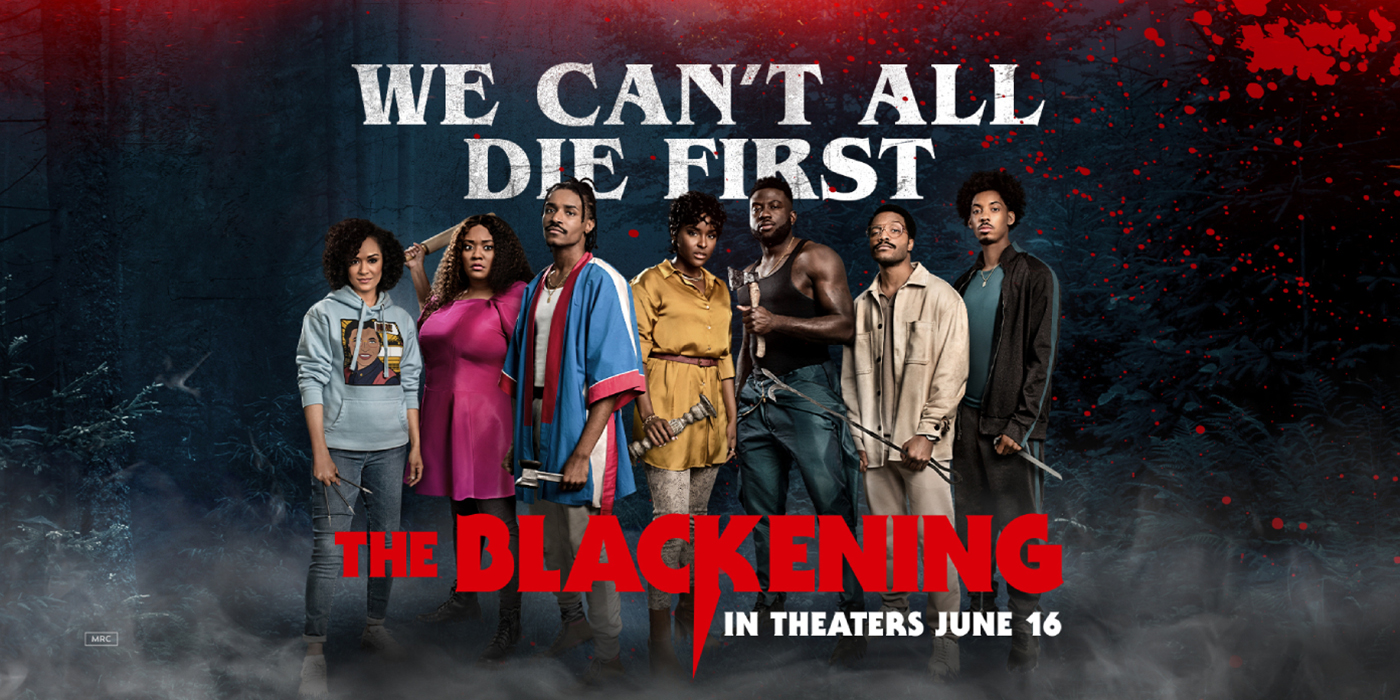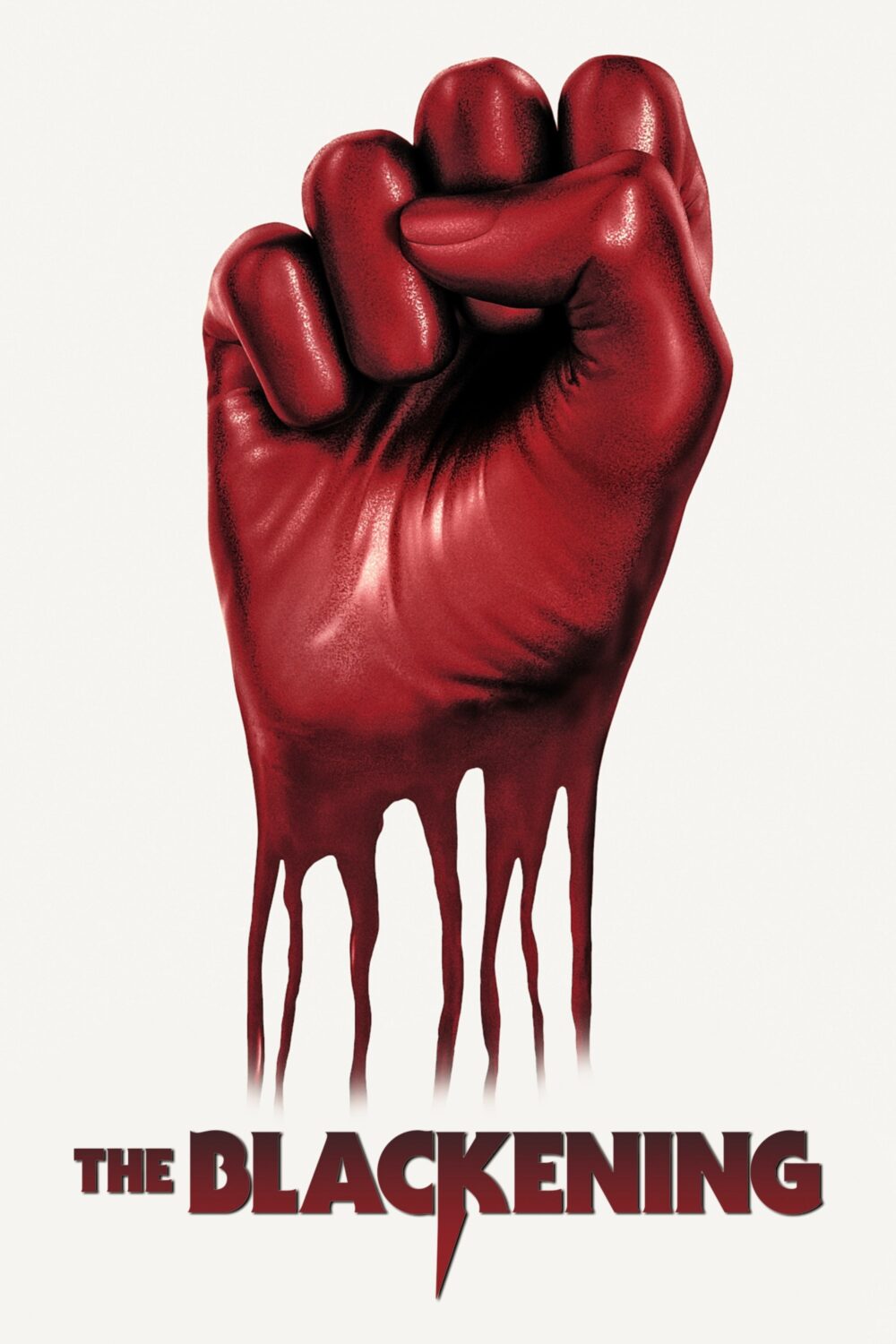Unlike the early 2000s when Black comedies were highly popular and starred the same rotating cast of actors like Morris Chestnut, Kevin Hart, and Gabrielle Union, today’s Black comedies and dramas go straight to streaming and not to the big screen. Even Tyler Perry has stopped putting his Madea franchise on the big screen. When I first saw the teaser for The Blackening, I was surprised that it would be hitting theaters. The concept seems straight-to-streaming; it really didn’t intrigue me much. It wasn’t until I started reading early positive reviews from the majority of white critics who have notoriously panned 80% of Black comedies in the past 10 years that I thought I should give The Blackening a try, but I kept my expectations low.
The Blackening is directed by Tim Story, who started his career off by directing The Barbershop (2000), which starred Ice Cube and became a hit with the critics and at the box office. After its success, Story got his chance to direct more mainstream properties, starting with the infamously first two Fantastic Four films in the early 2000s. The films saw a return at the box office but were collectively disliked by both critics and moviegoers. Over the past ten years, Story has been the go-to director for major studio black comedies like Think Like a Man (2012) and The Ride Along films, which were critically decent at best. Story’s direction is one of the reasons I kept my hopes low before screening this film. However, I realized that Story was hired for his best attribute as a director—to keep together an ensemble cast and a really good script. That is what makes this film work: the writing of the film. The Blackening was written by Dwayne Perkins, whose only credit comes from television with the comedy Brooklyn Nine-Nine. The film was also co-written by Tracy Oliver, who wrote the sleeper hit Girls Trip (2018).

Coming out of The Blackening, I realized there’s no real plot or story, but that doesn’t matter. The film runs on concepts and scenarios. The film centers around a group of HBCU friends reuniting after ten years in a cabin getaway for Juneteenth. The Blackening is marketed as a Black horror comedy, but it’s really just a comedy. If you’ve seen the trailers or advertising on TV and streaming, what you see is what you get out of this film—nothing more, nothing less. The horror element of the film is there just to drive the great comedic dialogue based on mainstream Black culture of the past 25 years. One of the universal themes is that Black people are always the first to die in horror films, so if everyone is Black, who is the first to die? Although the film’s comedic themes center around Black culture, it works because the comedy is based around Black tropes that are mainstream and familiar to all races. The Blackening is a comedy for everyone; its runtime is short and sweet, running just under 90 minutes. The film hits you with the jokes and the physical gags; it gets in and out with the content. The film stars relatively unknown television actors outside of cameos by comedians Jay Pharaoh, known from his stint on Saturday Night Live, and Yvonne Orji from the hit HBO series Insecure. The film also stars Grace Byers, whom you may recognize from the show Empire on Fox. It also stars Sinqua Walls, who’s known for playing Shawn, famously ruthlessly killed off on the Starz series Power by his own father, Kanan. Overall, The Blackening is a breath of fresh air. It’s now streaming on multiple platforms and is worth the minimal rental price.

